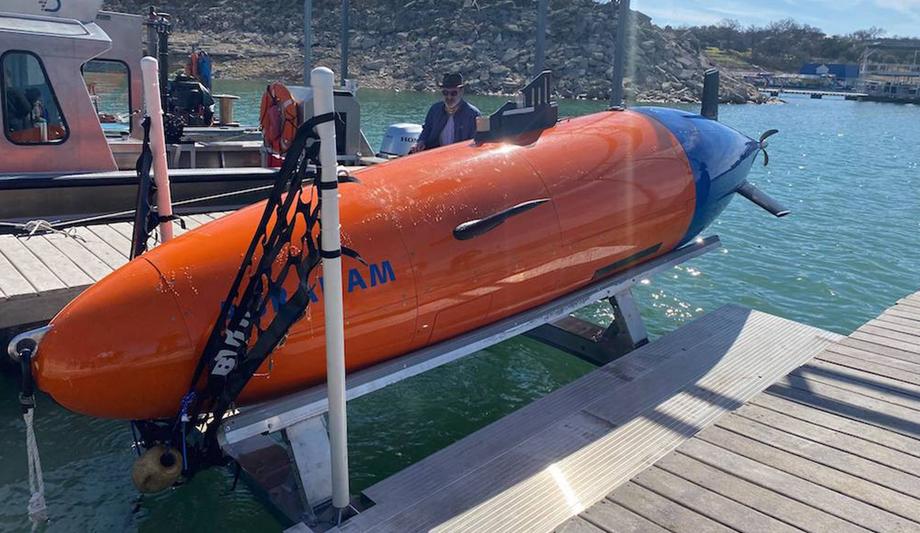When I recently read about OceanXplorers, Disney Plus' new series about heroic scientists researching the world of the deep, I was excited—not least for my kids—and quietly dismayed. Our society needs to do for the ocean what Carl Sagan and Neil DeGrasse Tyson did for outer space: familiarise ourselves, get excited, engage and connect.
That said, NASA's funding is $22.6 billion, and NOAA received roughly one-quarter of that at $5.4 billion. A decent amount of people reading this may not even know what NOAA is. At the risk of alienating the reader, let me point out that I love NASA. Facing severe resource constraints on Earth, we must explore outer space both for humanity and science.
Efforts to save the ocean
But it appears that the majority of the human population, if not located on a coast, treats the ocean as something nice to visit and beautiful to look at (which it is) instead of a critical part of the planet.
If ocean exploration, conservation, and protection efforts are best known as edutainment, we're in serious trouble. We're at war for our lives and need to approach the problem accordingly because when things get too hot, I guarantee a spaceship won't save us all.
The problems that kill us
More CO2 means less oxygen, bleached coral reefs, suffocated ocean species, and violent weather
People like to make war references in daily conversation. The war on drugs. The war on guns. The war with my waistline. You can go to war with anything these days. I don’t use that term loosely, considering I was a Navy SEAL officer for a time. Based on that experience, I intuitively understand that the risks that end up killing you are the ones you overlooked or minimised.
Minimising human-induced oceanic changes is one of those risks. The ocean is the planet's air conditioner, according to climate scientist Dr. Roberto Mera. Our advisor Dr. Dan Laffoley once said that the ocean is absorbing six atomic bombs' worth of energy every day. More CO2 means less oxygen, bleached coral reefs, suffocated ocean species (including the ones we eat), and an array of violent weather, from Katrina to the California wildfires.
Creating a force to be reckoned with
What gives us life, in other words, is increasingly positioned to destroy us. We need to have grown-up conversations about the vast and precious resource that is the ocean. To go there, it helps to revisit warfare.
I'm not talking about the damaging nonsense that involves sabotaging vessels or hurting people to save fish. I'm talking about network-centric warfare, a modern military theory in which the smart and rapid centralisation and decentralisation of information create a force to be reckoned with.
A complex problem
Databases are disparate and incompatible, often filled with unsearchable, useless, aged data Like modern warfare, saving the ocean is a complex problem with a disaggregated group of stakeholders, some in competition, some helpful, depending on the day. People scream from the rooftops that we need to do something, but everyone’s doing it their way.
Oceanographers, entrepreneurs, climate scientists, marine biologists, conservationists, geologists, militaries, extraction businesses, telecommunications companies, pharma companies, etc., all have their sources of data. Databases are disparate and incompatible, often filled with unsearchable, useless, aged data.
A murky struggle
Collaboration and partnerships are very limited - and difficult. Conservation groups struggle to survive, subsidized by oil and gas scraps. Marine conservation enforcement entities generate their intelligence while simultaneously trying to combat illegal fishing and encroachment.
The United Nations attempts to wrangle sovereign nations to contribute to the effort through Sustainable Development Goals but struggles with authority and cohesion.
A network-centric approach
At war, we faced a mess of non-state actors, shifting alliances, misinformation, and ambiguous goals. We decentralised where we could and centralised where we had to. It was a way of mitigating risk while blanketing a complex problem set.
I see similar opportunities in the murky, complex, diverse group of stakeholders and competitors in ocean protection, conservation, and use. We can work to save it with a similar approach:
1) Identification, framing, and understanding
“Traditional” analytical decision-making and planning methodologies often fall short
In modern war, volatility, uncertainty, complexity, and ambiguity are constant conditions. “Traditional” analytical decision-making and planning methodologies often fall short. Successful parties fanatically focus on finding the real problem(s), labour to put them into context, and work towards a full understanding of a problem set.
This often means garnering multiple different perspectives on the issues, in an attempt to saturate the party within the fullness of the problem. Through that saturation, teams come to a workable initial solution almost intuitively—and then refine from there.
Ocean stakeholders need to adopt a similar mindset, and fanaticism, around understanding multiple different perspectives instead of retreating into their separate ideological camps. And yes, this will require die-hard ocean conservationists to speak frequently and find common ground with die-hard ocean resource extraction personnel, and vice-versa.
2) Intelligence fusion cells
Become obsessed with the intake of disparate datasets, a fusion of those data, and distributing the most relevant data to a wide stakeholder base.
In the war, this meant standing up intelligence fusion cells that ingested data from a staggering amount of sources, vetted it, organised it, added context and guidance, and distributed it to the problem-solvers who needed it—in real-time, all the time.
Decentralised and autonomous
Ocean protection and conservation entities need to remain decentralised and autonomous
Ocean protection and conservation entities need to remain decentralised and autonomous due to geographic dispersion. We can, however, create a central clearinghouse for ocean data to empower and enable those decentralised units.
For example, a cloud-based, UN-level entity could act as an ocean intelligence fusion cell. The mission of the entity could be something like: “to balance ocean conservation and human needs across time for the sustainability of Earth.”
Ocean stakeholder entities
This common information platform would be permanently staffed by a rotating group of cross-functional ocean SMEs: conservationists, scientists, and yes, resource extraction personnel from arenas such as commercial fishing, marine mining, oil and gas, offshore wind, etc.
Ocean stakeholder entities could apply for membership, be vetted by the fusion cell’s security group, commit to a membership charter, and be eligible to receive fast, accurate, applicable, and actionable intelligence as it becomes available.
3) Smart autonomy
At war, the action was not prescribed from on high. Most ‘ top-down’ transmission consisted of information and context. Commanders trusted their subordinates to solve problems quickly and autonomously with fast, good information.
Ocean fusion cells would provide data and information creating better future decision-making
Similarly, our ocean fusion cell would provide data and information from whatever activity was conducted to monitor for second-and third-order effects, creating better future decision-making. After-action reviews and post-mortems from ocean activities would be widely socialised via the platform, ensuring lessons learned were both captured and distributed to enable learning from past mistakes.
This approach requires an investment of time, money, and humans. But it would be transformational concerning the clarity a diverse set of stakeholders would have on ocean activities. And clarity, especially in a war, is utterly priceless.
The time is now
The time has come to apply the principles of network-centric warfare to the ocean. Five years ago, the requisite compute, AI power, and data collection capabilities for a data fusion entity powered by a massive central data platform didn't exist. Today it does.
For the first time in humanity, we can gain a holistic understanding of the ocean, and the entire Earth. The technological advances came just in time. Let's use them.

